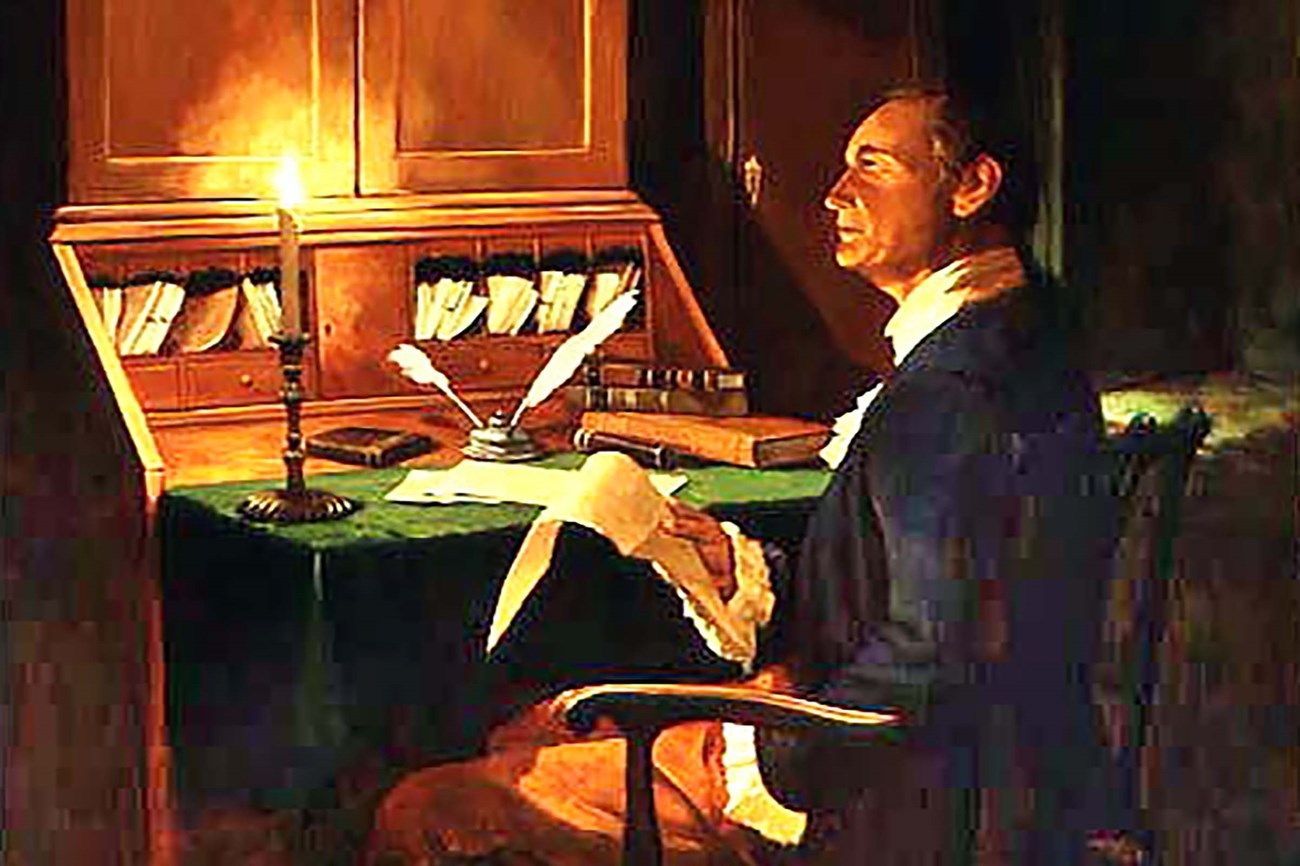Last updated: January 23, 2025
Article
A Reluctant Revolutionary?

Harpers Ferry Center
If you ask Americans who the signers of the Declaration of Independence were, some might be able to tell you that Benjamin Franklin, John and Samuel Adams, and John Hancock (possessor of the largest signature on the document) were signers. Some might even know that Thomas Jefferson wrote the Declaration. Others might believe that well-known founders such as George Washington or Patrick Henry signed (neither one did). But few could tell you how many men signed the Declaration (56) and even fewer still could tell you the identities of more than four or five signers, mostly men who were very outspoken in their belief and support for revolution. The men who were considered moderate in their outlook are often ignored and forgotten. This is the case in Thomas Stone's story.
Today, many Americans believe that the Revolutionary War was supported by almost everyone in the thirteen colonies, and that all of our founding fathers were revolutionaries, eager for war and independence. This is an inaccurate belief. Many of the men comprising the Continental Congress were moderate in their views, particularly in the first year of the war. Thomas Stone was among this number. Thomas Stone was not a rash man. He was cautious and deliberate in his actions. As one of the youngest men in the Continental Congress, the thirty-three-year-old Stone preferred the background, rather than the spotlight, and was known more for the quality of his writing than for his eloquent voice.
By 1776, however, the majority of Congressmen had shifted their political stance in support of the revolutionaries. Only a few men, Thomas Stone included, continued to strive for peaceful reconciliation with England. Due to his caution, Stone is often considered a "reluctant revolutionary." But when he made his decision to align with the revolutionaries, Stone supported the war wholeheartedly.
